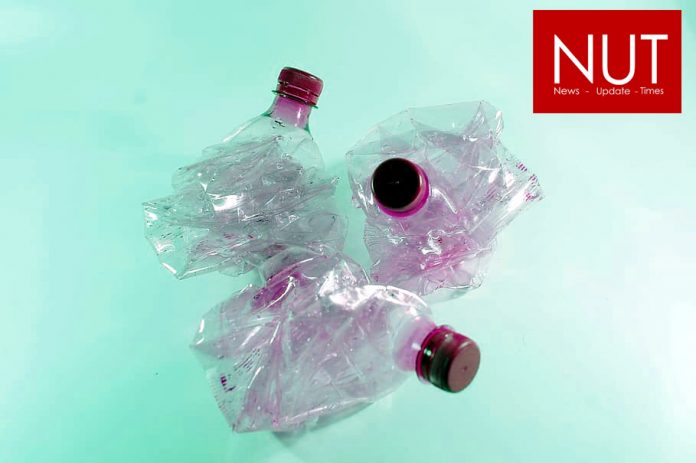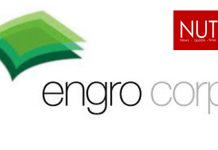By Jeuni Khan (President), Sameer Nasir (Vice President) & Rania Khan (Chairperson)
The age we live in is that of exceptional denial. The Pakistani populace has ignored the adverse effects of climate change on the country. Climate Impact PK set out on a journey, one that would address all facets of climate change in Pakistan in an effort to slow its consequences. The mission is to advocate for climate change through a two-pronged approach. The first prong is prioritizing increased awareness of overlooked environmental problems through a wide range of forums. The second prong is putting forth innovative, action-based solutions to attend to Pakistan’s environmental crises.
Climate Impact PK began with the two co-founders Rania Jawad Khan and Jeuni Amir Khan, who firmly believed in a new approach to youth environmental activism: actions speaking louder than words. Rania acts as chairperson with her undying passion whereas Jeuni takes the role of president with her enthralling ideas. The rest of the core team consists of Sameer Nasir, the no-nonsense vice president and head of operations, Momena Rana, the spirited Projects Director, Mehma Rashid, the exceptionally creative Media & Communications Director, and Jasim Butt, the analytical Director of Finance. This motivated team, consisting of varying expertise and personalities, serves to provide a fresh perspective on climate change in Pakistan.
The main objective of CIPK’s first assignment, Project Zero Waste, was to combat the excess plastic waste problem through recycling to minimize its detrimental effects. More specifically, to utilize a sustainable process that converts PET bottles into blankets. The blankets are then to be donated to an orphanage called the Bali Memorial Fund, in an effort to make eco-friendly products accessible to the underprivileged.
The first step of the project was the collection of PET bottles from across Lahore. With the help of KFC Pakistan, which is known to be the world’s second-largest restaurant chain, the team was able to gather a total of five hundred bottles that would have otherwise been thrown away or incinerated. Next, with the help of Wastebusters, a progressive waste management, and recycling company, Climate Impact PK was able to carry out the main process, where the bottles were taken to the Wastebusters factory to be recycled into the final product: rPET blankets. The process starts with a collection of bottles, after which the bottles are thoroughly cleaned and shredded into pallets at the waste busters facility. Next, the plastic pallets are liquified and turned into recycled polyester fiber and yarn, with which we are able to create almost anything. However, the product we chose was rPET blankets. Recycled polyester is a material that requires 59% less energy and resources in contrast to virgin polyester. In addition to that, the production of rPET polyester is known to release 32% less CO2 emissions in comparison. This is crucial because if you are not talking carbon emissions, you are not talking climate change.
The CIPK team is passionate about mitigating the environmental consequences of plastic waste, while simultaneously providing for those in need. The distribution of the final product targeted areas where the blankets and awareness about the harm surrounding plastic waste are needed the most. The team chose the Bali Memorial Fund to be the place where the blankets were distributed, thus concluding Project Zero Waste. The core team of CIPK personally visited the orphanage and spent quality time with the girls, educating them about the environment. Above all, the end products serve to be eco-friendly solutions to the vulnerable parts of the society, along with a new perspective for the children.
The social media campaign has continued to provide transparency alongside Project Zero Waste. In pursuit of having more awareness, an awareness campaign on the Climate Impact Instagram page has been launched to apprise anyone and everyone about the detrimental effects of plastic waste and major environmental news (i.e the Paris Climate Agreement Anniversary). The organization, as a whole, has always believed that awareness is imperative to make an impact or a change in the climate situation of Pakistan. The Green is the New Black blog is yet another way CIPK is raising awareness of major climate issues, most notably how urbanization and COVID-19 lockdown has affected climate change in Pakistan. It is to say that awareness along with implementation form the backbone of the organization
Over the course of the last 8 months, the project has received recognition from many large firms and has been a social media sensation. CIPK has been involved in contacting those who are most passionate and knowledgeable on plastic pollution, such as Rafay Alam, a renowned environmental lawyer, the sustainability department at Pepsico, the CEO of Wastebusters and countless others. We thank them for their guidance, insight and time. Climate Impact PK owes the success of Project Zero Waste to these figures as well as its social media community.
Seeing as the climate issue of Pakistan is central to our development as a nation, Climate Impact PK does feel that it has achieved part of its purpose –slowing the consequences of climate change through local, innovative projects while also spreading awareness– and will strive more towards its purpose over the coming years. Project Zero Waste, being the debut project of CIPK, is a project that it is incredibly proud of as it has positively impacted the plastic waste issue. The advances made towards a green Pakistan have been rendered remarkable by various environmental personalities. The organization hopes to make a larger, and more meaningful “climate” impact in everything that it takes on. The core team has continued to bring an innovative perspective in an effort to break away from the stereotypes of what it truly means to be environmentalists in a new age.






